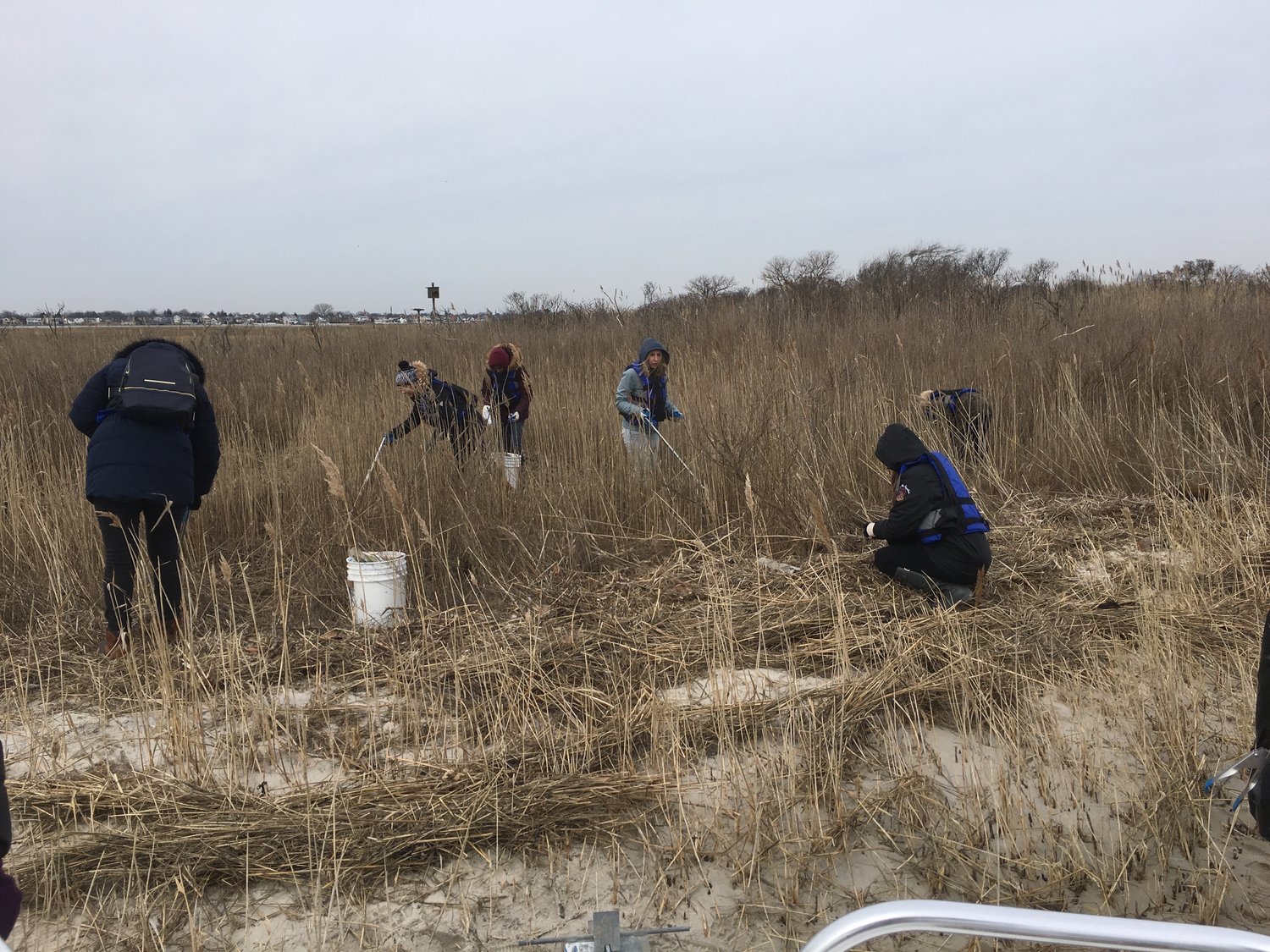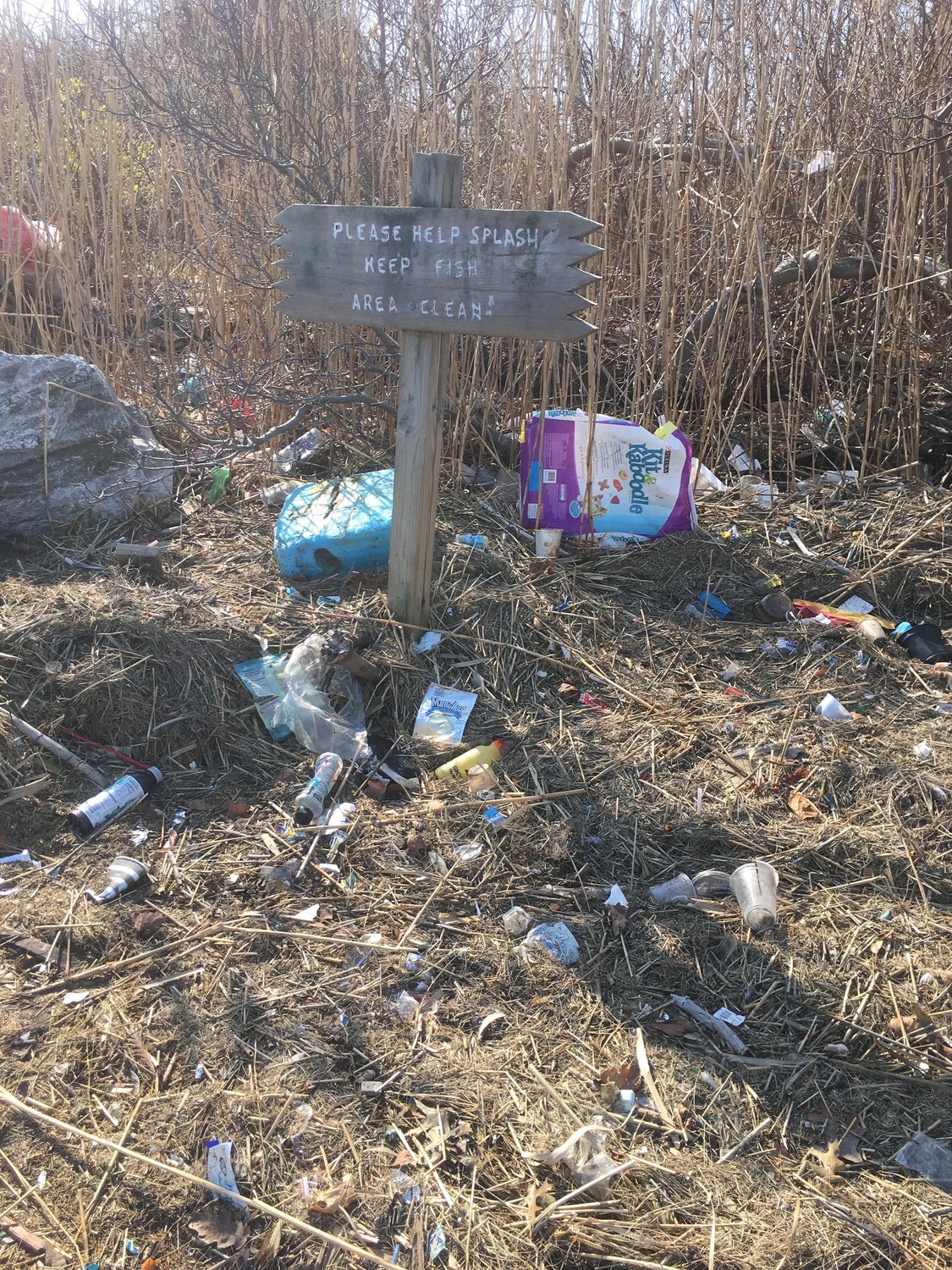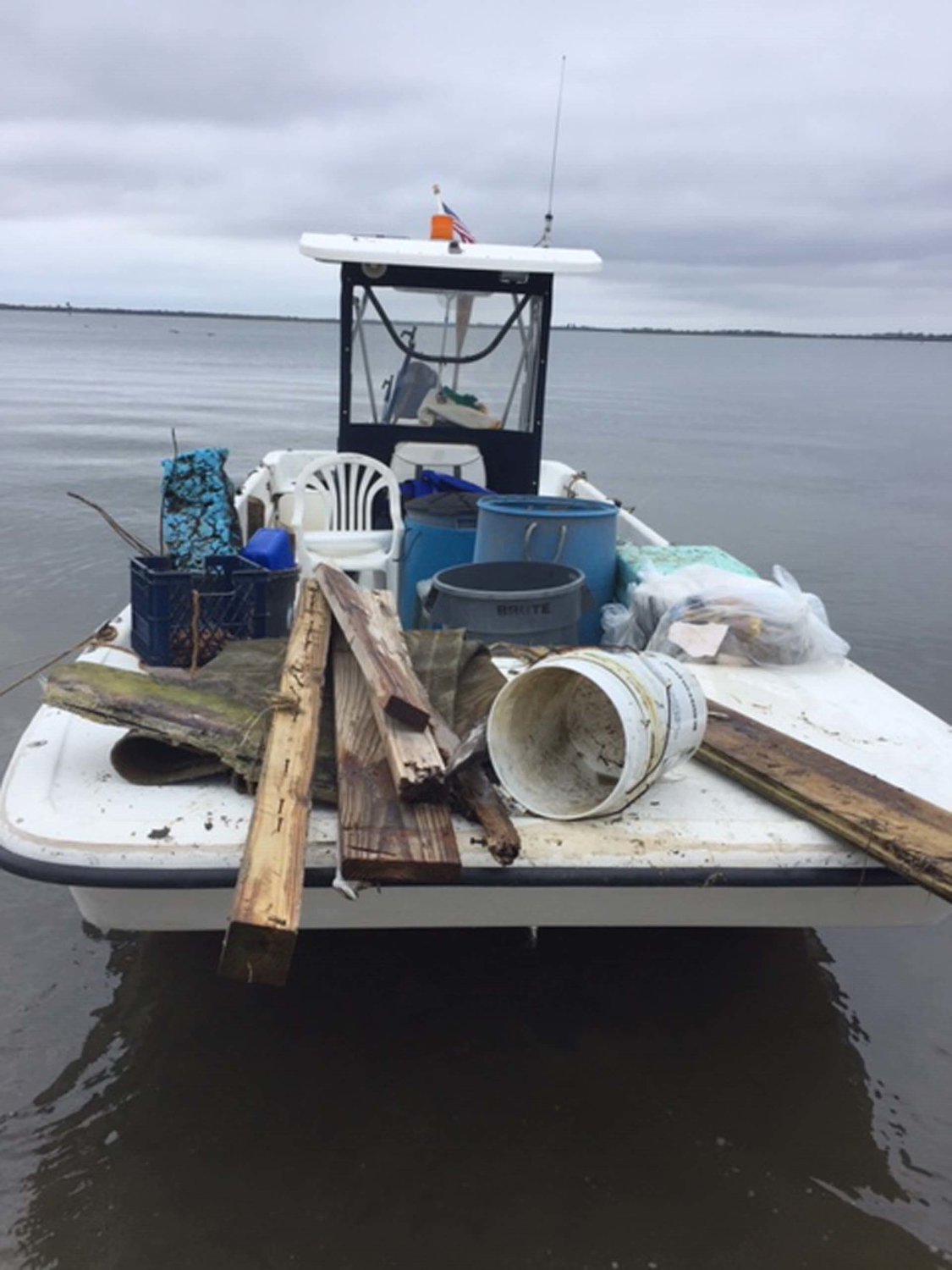SPLASH takes on pollution
Wantagh boat prepped for spring cleanup of South Shore
As part of Operation SPLASH’s mission to eliminate waterfront pollution, a boat is expected to launch from the Wantagh Park Boat Basin next month, weather permitting — one of seven boats operated by the organization to clean up Long Island’s waterways.
In its 29-year history, Stop Polluting, Littering and Save Harbors, headquartered in a large cinderblock building in Freeport, has collected roughly 2.5 million pounds of trash on Long Island’s South Shore. “We’re all volunteers going out to try to provide a low-cost solution to the growing problem of waterfront pollution,” President Rob Weltner said.
The foundation has roughly 3,500 members, 300 to 400 of whom are active volunteers. “At Operation SPLASH, we don’t just talk about problems,” Weltner said. “We actually get off of our couches, put down our remotes and go out and work on solving the problem.”
Each spring, the organization sends boats it owns to six areas around the Island to collect trash and debris, Weltner explained. Two boats are assigned to the Freeport area, while the other five patrol Wantagh, Bellmore and Merrick; Massapequa; Lindenhurst; Island Park and Long Beach; and East Rockaway and Bay Park. Port captains coordinate the boats’ schedules.
Gary Smith oversees patrols in the Wantagh, Bellmore and Merrick area, with the help of Port Coordinator Carolyn LaRosa. The boat has worked in the area for roughly 15 years. “Enough people in the Wantagh area contacted us, and they felt that they could support a boat,” Weltner said. “They had fundraised for the fuel, and for insurance and maintenance. They felt very strongly about protecting the marine environment, so we worked together to get them a boat.”
Boat crews find the most trash after the winter season, and after heavy rainfalls in the warmer months. Land-based trash makes its way through storm drains, and most of it ends up in South Shore bays.
Volunteers venture onto the salt marshes where debris accumulates, brought by tides, wind and storms. “We call it rescuing the trash,” Weltner said with a chuckle. “We say, ‘We rescued 300 bottles today,’ or bags or whatever we pick up.”
Around Thanksgiving, the boats are hauled out of the water and brought back to the organization’s Freeport headquarters, where they are serviced.
In addition to its collection work, SPLASH also has an expansive schools program for second-graders through graduate students and professors. One of the Freeport boats is used as the organization’s education boat. People can venture onto the water with volunteers to learn about waterfront pollution.
Roughly 3,000 second-graders visit the organization’s headquarters every year, Weltner said, and volunteers also visit local schools. “We teach them about the environment in baby steps,” he said. “But the kids are very smart, and they get it very quick. . . . They seem to know exactly what we’re talking about. . . . They’re very enthusiastic and they really care.”
Sharon Jonas, a SPLASH volunteer who works with second-graders, said she is passionate about preventing waterfront pollution. “I respect and love nature and animals,” she texted the Herald. “It pains me to see the ways that we, either by accident, ignorance or thoughtlessness, do such harm to our precious natural resources. I’m a mom, too, and soon-to-be grandma, and don’t want our children to inherit a mess that could have been prevented.”
Local streets and waterways are connected, Jonas added on the phone. A deflated balloon in a Seaford street or canal can end up in a seal’s stomach in Freeport, or around the neck of a bird at Jones Beach, she said. “We should all be able to agree that pollution [and] litter harm our waters, our neighborhoods, our marine life, pets [and] the value of our homes,” she said. “There’s just not one good thing about it. Even if we’re not hands-on volunteers, if we just know how things work and don’t contribute to the problem, [that] would be a really big step in the right direction.”

 47.0°,
Mostly Cloudy
47.0°,
Mostly Cloudy 









